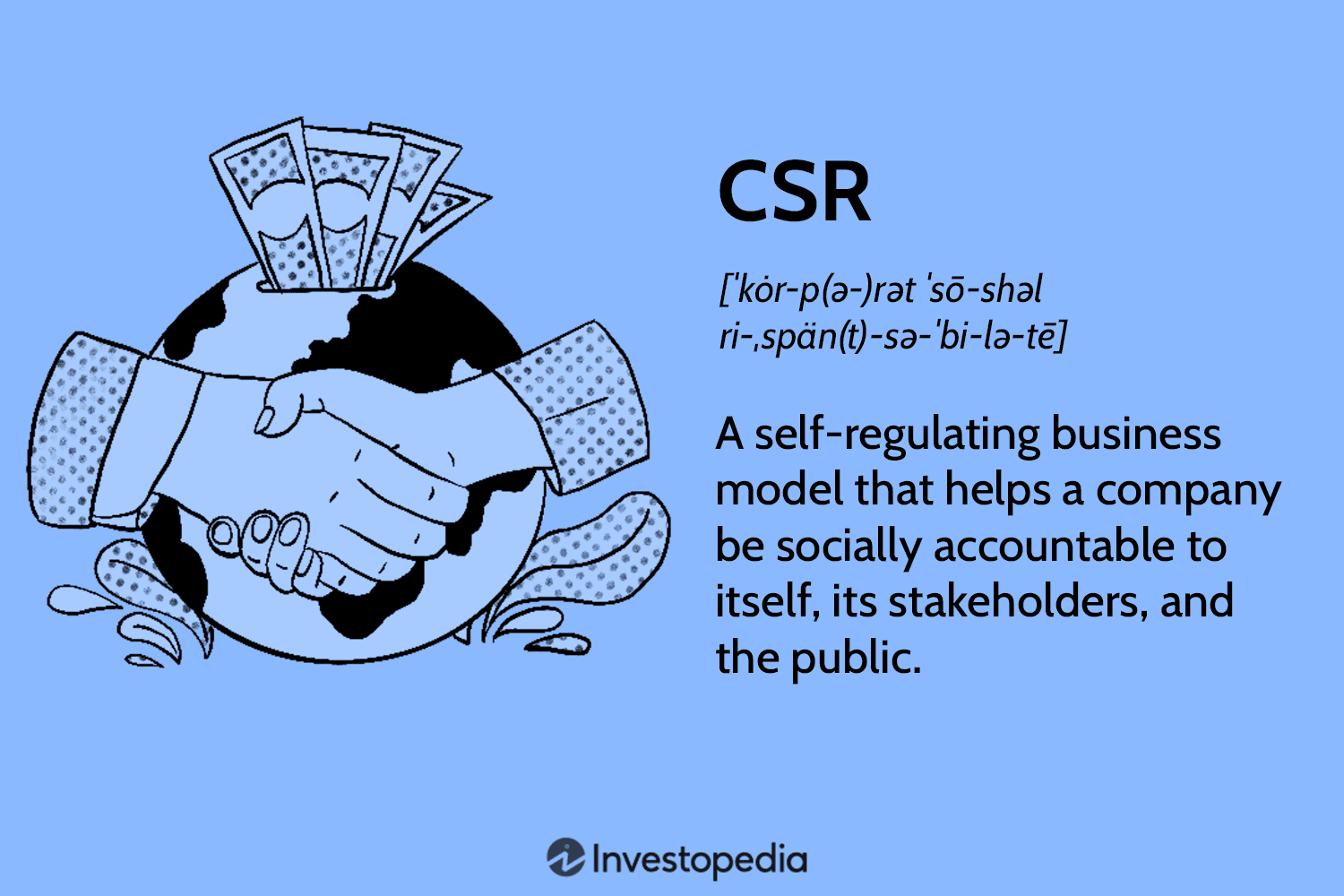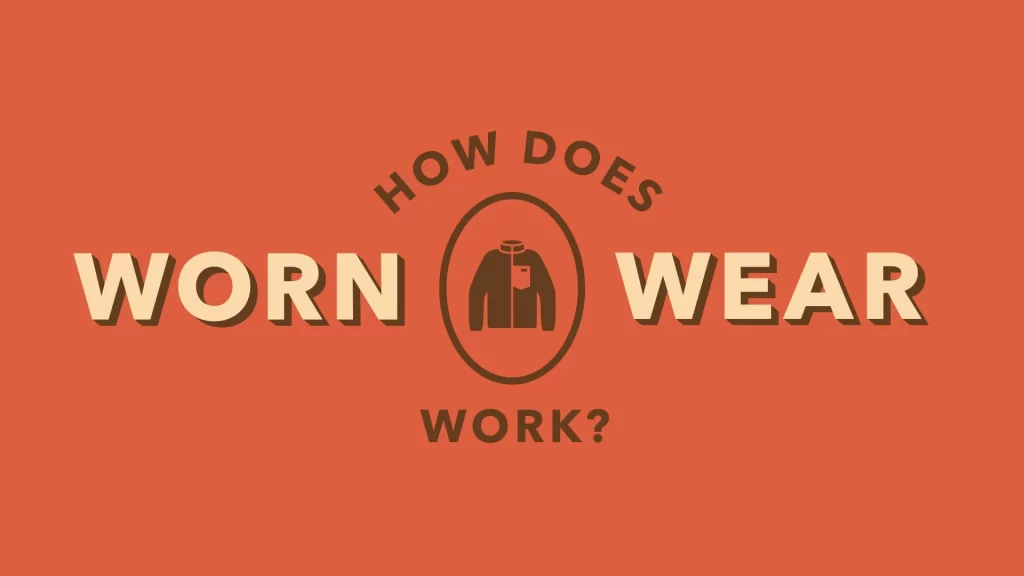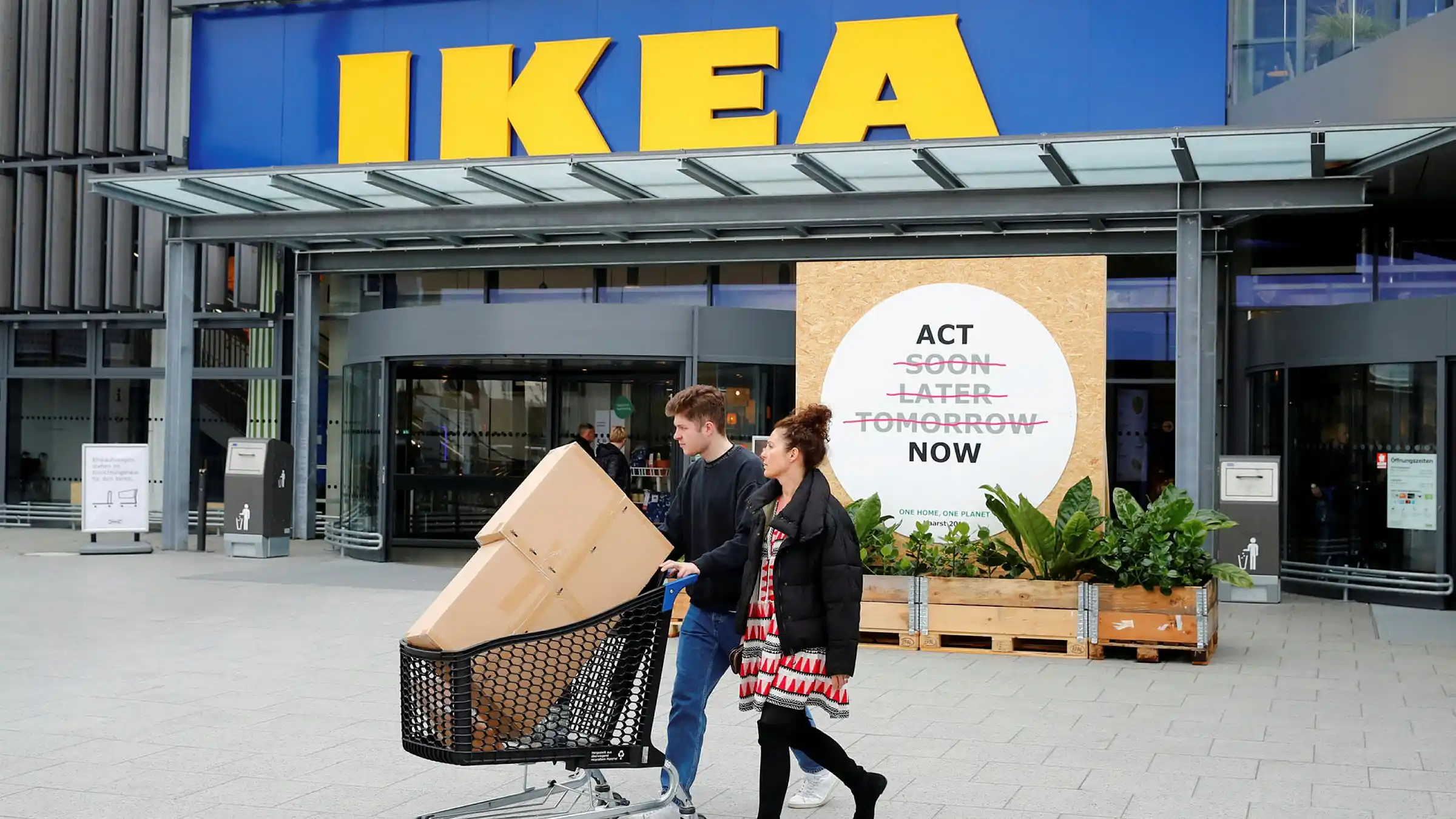Leading by Example: Inspiring Corporate Social Responsibility Examples to Follow
Corporate Social Responsibility (CSR) refers to a company's commitment to contributing positively to society and the environment. CSR initiatives can range from reducing carbon footprint to supporting local communities through volunteering and charitable donations. CSR has become increasingly important for businesses as consumers demand more transparency and accountability from the companies they support. In fact, a survey by Cone Communications found that 94% of consumers would switch to a brand that supports a social or environmental cause.

While CSR is often seen as a way for businesses to “do good,” it also brings tangible benefits to the company itself. One of the most significant benefits is improved brand reputation, as consumers are more likely to support a company that is socially responsible.

CSR can also lead to increased employee satisfaction and retention, as employees are more likely to stay with a company that aligns with their values. In addition, CSR initiatives can lead to cost savings through reduced waste and energy consumption.
Corporate Social Responsibility examples from well-known brands
Patagonia’s “Worn Wear” Initiative

Patagonia, an outdoor clothing company, has made sustainability a core part of its business model. One of its most notable initiatives is the “Worn Wear” program, which encourages customers to repair their Patagonia clothing rather than buy new items. The company also offers a trade-in program for used clothing, which is then resold or repurposed.
The “Worn Wear” initiative has helped Patagonia reduce its environmental impact while also building brand loyalty among customers who appreciate the company’s commitment to sustainability.
Ben & Jerry’s Social and Environmental Initiatives
Ben & Jerry’s, the popular ice cream brand, has a long history of supporting social and environmental causes. The company has used its platform to advocate for issues such as climate justice, marriage equality, and criminal justice reform.
In addition, Ben & Jerry’s sources its ingredients from fair trade suppliers and uses only non-GMO ingredients. The company also has a program that supports small-scale farmers in developing countries.
By aligning its brand with social and environmental causes, Ben & Jerry’s has built a loyal customer base and differentiated itself from competitors in the crowded ice cream market.
Toms’ One for One Movement

Toms, a shoe company, has become well-known for its “One for One” movement, which donates a pair of shoes to a child in need for every pair purchased. The company has also expanded its giving to include eyewear and clean water initiatives.
Toms has built its brand around the concept of “conscious consumerism,” appealing to customers who want to make a positive impact with their purchases. The company’s giving initiatives have also helped it stand out in a crowded shoe market.
The Body Shop’s Community Trade Program
The Body Shop, a cosmetics and skincare company, has a long history of supporting social and environmental causes. One of its most notable initiatives is the Community Trade program, which sources ingredients from small-scale farmers and artisans in developing countries.
The program helps support local communities while also providing The Body Shop with high-quality, sustainably sourced ingredients. The company has also launched campaigns to raise awareness about issues such as animal testing and domestic violence.
By aligning its brand with social and environmental causes, The Body Shop has built a loyal customer base and differentiated itself from competitors in the cosmetics market.
Ikea’s Sustainable Practices

Ikea, the furniture and home goods retailer, has made sustainability a core part of its business model. The company has set ambitious goals to reduce its carbon footprint and increase the use of renewable energy.
In addition, Ikea sources its materials from sustainable suppliers and has programs in place to reduce waste and promote recycling. The company has also launched initiatives to support local communities, such as providing refugees with employment opportunities.
By prioritizing sustainability, Ikea has built a reputation as a socially responsible company and attracted customers who value sustainability and environmental stewardship.
Lessons learned from successful CSR campaigns
The success of these CSR initiatives provides valuable lessons for other companies looking to make a positive impact.
First, it’s important to align CSR initiatives with the company’s core values and mission. This ensures that the initiatives are authentic and resonate with customers and employees.
Second, companies should focus on making a tangible impact rather than just “checking the box” on CSR. This requires setting measurable goals and regularly evaluating progress.
Finally, companies should communicate their CSR initiatives effectively to customers and employees. This helps build brand reputation and fosters a sense of pride and purpose among employees.
Conclusion
Corporate Social Responsibility is no longer just a “nice to have” for businesses – it’s becoming a necessity. Customers and employees alike are demanding that companies take a more active role in making the world a better place.
The examples provided by Patagonia, Ben & Jerry’s, Toms, The Body Shop, and Ikea demonstrate that CSR initiatives can bring tangible benefits to the company while also making a positive impact on society and the environment.
As businesses look to the future, it’s clear that CSR will play an increasingly important role in shaping brand reputation and customer loyalty. By leading by example, these companies are inspiring others to follow in their footsteps and make a positive impact in the world.
If you want to learn more about how CSR can benefit your business, get in touch with us today. Our team of experts can help you develop CSR initiatives that align with your values and make a measurable impact.




